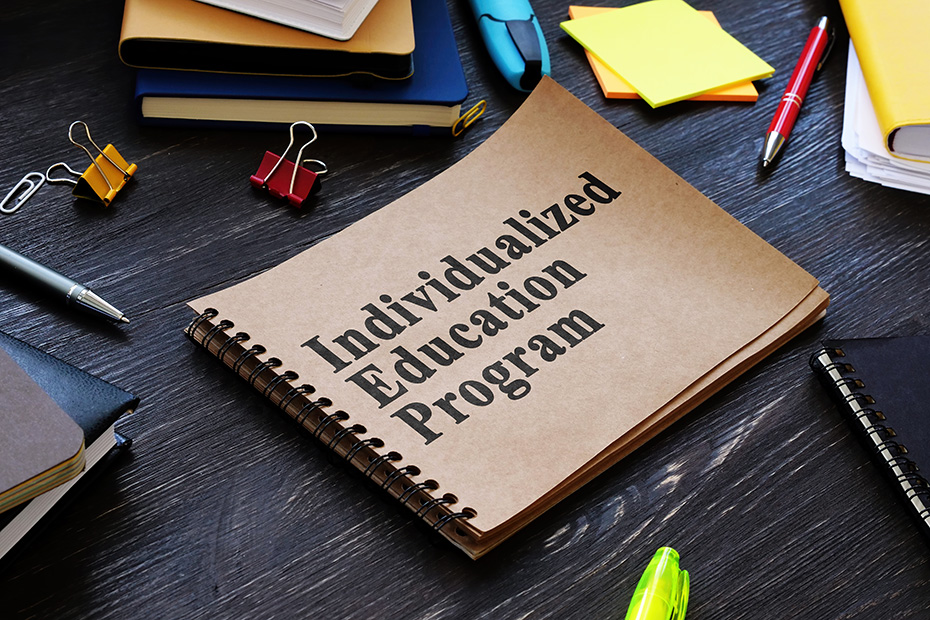IEP
The term IEP is an acronym for “Individualized Educational Plan.” In New Jersey an IEP is a written document that outlines a young person’s education (ages 3-21 with special needs or disability). It is important to keep in mind that emotional disturbances or struggles can also qualify a young person for an IEP. Ideally the young person's needs are discussed, and accommodations are made within the school to help the person reach their academic goals easier. An IEP is given not just to focus on the youth’s disability or challenges, but rather to emphasize and support the strengths and skills of the youth. These skills are used towards enhancing a youth’s education in all possible ways with the help of many people involved.
It is important to note that children in placement may face additional challenges in obtaining and implementing an IEP due to factors such as frequent school changes, lack of parental involvement, and emotional trauma. Therefore, it is essential for educators and case workers to work together to ensure that the unique needs of children in placement are being met through the IEP process. Additionally, it is important to provide foster parents with resources and support to help them understand and navigate the IEP process.
A child/youth must meet 1 of the
The disability must affect the child/youth’s performance at school without support.
- lack of school attendance
- poor concentration in class
- social difficulties with classmates
- non-engaging behaviors
- recurring disciplinary action
- poor grades over an extensive period of time
YES! It is completely free!
There are 5 steps to getting an IEP in New Jersey:
- Youth must obtain a ‘Special Education Evaluation’ referral from either a teacher, parent, or other school personnel. The referral may be written or verbal. Guardian consent is needed to proceed with the evaluation.
- Evaluations are usually conducted by School psychologists to determine if the child will qualify for an IEP. If it is determined you do NOT qualify, Youth have the right to still obtain an IEE (Independent Educational Evaluation) and ask the school system to pay for the process.
- Eligibility is determined based on the Evaluation. A team of professionals meet to discuss the results, if the team determines you are not eligible after the evaluations you may ask for a hearing to challenge the decision.
- Within 30 days after the child is determined eligible for special education services, an individualized plan will be put in place for the child! Teachers, parents, and youth sit and discuss best avenues for support at home and school to ensure academic growth while following the child’s IEP.
It is required by Federal Law that all IEPs are reviewed annually, although parents or youth can request to revise the plan more often based on progression and growth.
YES! It is free!
A 504 plan is usually created with an IEP, and for grades K-12. An IEP can be put in place as early as pre-K and will last until the age of 21. The 504 plan is also a free program offered to children/youth in New Jersey.
- Feedback from teachers, coaches, counselors
- Test taking results
- Parent feedback
- General classroom performance
Most youth who have a 504 will still be able to be in a traditional classroom setting, though accommodations will be made such as more time for tests, or extra study hours. An assistant teacher may be offered to the child/youth in the classroom for extra help.
Even though both an IEP and 504 plan share a lot of commonalities, the main difference between them is that IEPs are designed to protect the rights of the child under the disabilities education act (IDEA).504 plans provide accommodations for the child and DO NOT require specialized instruction. 504 plans DO NOT have to be renewed annually. This plan aims to provide the child with special needs access to public education while also protecting from discrimination related to their disability.
IEPs are only given to children who have at least 1 of the 13 disabilities listed. On the other hand, 504 plans allow any child with a disability to be eligible if there are barriers that interfere with learning abilities in a classroom.
Testing for these accommodations is done periodically, so if you feel like you need assistance, speak up quickly.
If you are a parent interested in learning more about your rights in IEPs
If you have an IEP and are a graduating public-school senior from Bergen, Passaic, Hudson, Essex, Morris, Somerset, Union, Warren or Sussex County you may be eligible for an up to $1,000 scholarship. For more information see The Alliance Connections for the Future Scholarship
 Official Site of The State of New Jersey
Official Site of The State of New Jersey
